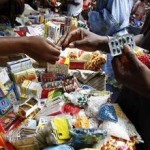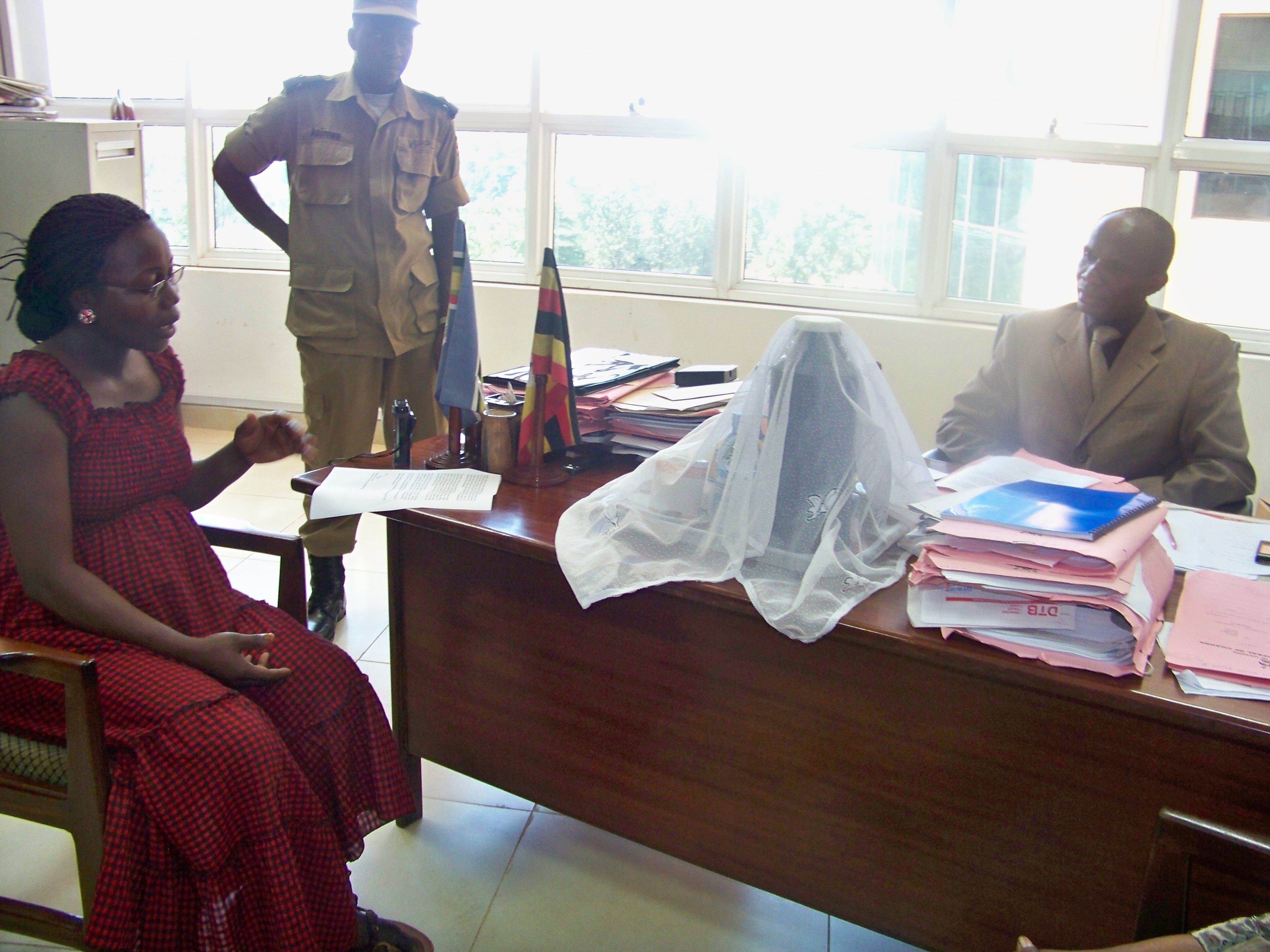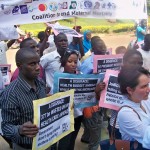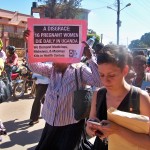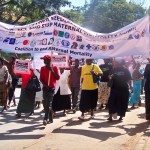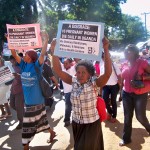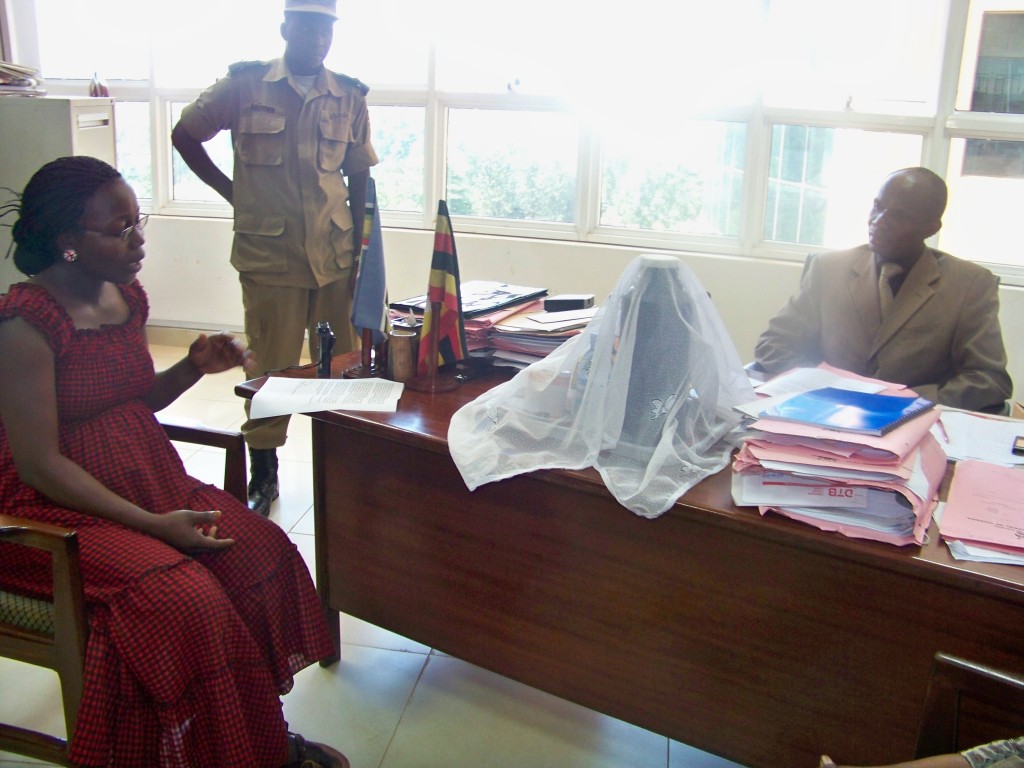Donald McNeil has an article in the New York Times that appeared in print on May 22, 2012 (page D6 of the New York edition) with the headline: “Malaria: Fake and Substandard Drugs Grow as Threat to Fight Disease.” A web version is available here: http://www.nytimes.com/2012/05/22/health/policy/fake-and-substandard-drugs-grow-as-threat-to-fight-malaria.html
Unless I missed something, the web based version of the story does not seem to accept comments, but I wanted to make a few comments, hence, this blog.
First, when Donald said:
“About a third of the drug samples from both continents failed. Some were clearly criminal counterfeits, some were expired drugs that had been repackaged and some were poorly made with too little active ingredient”
I was immediately interested in how many were actually counterfeit, as opposed to having false information on the label, or being of low quality. For political reasons, PhRMA and the Chamber plays up the counterfeit angle quite a bit, to justify a very broad intellectual property right enforcement agenda, by mixing together the counterfeit, falsified, substandard or fake drug categories.
The NYT article was reporting on a new study published in the June issue of Lancet Infectious Diseases (Volume 12, Issue 6, Pages 488 – 496, June 2012, doi:10.1016/S1473-3099(12)70064-6). The article is available, for free, here, with the title “Poor-quality antimalarial drugs in southeast Asia and sub-Saharan Africa.” The authors are Gaurvika ML Nayyar, Joel G. Breman, Paul N. Newton, and James Herrington. According to the study:
Of 1437 samples of drugs in five classes from seven countries in southeast Asia, 497 (35%) failed chemical analysis, 423 (46%) of 919 failed packaging analysis, and 450 (36%) of 1260 were classified as falsified. In 21 surveys of drugs from six classes from 21 countries in sub-Saharan Africa, 796 (35%) of 2297 failed chemical analysis, 28 (36%) of 77 failed packaging analysis, and 79 (20%) of 389 were classified as falsified.
The term counterfeit appears 9 times in the body of the article, and 22 times in the 83 footnotes. However, what the authors mean as counterfeit is a broader category of falsified drugs, including cases where any information about the drug is false, including such items as the expiration date or ingredients, wholly independent of any perceived infringements of trademarks or any other intellectual property rights. From the article:
Definitions of drug quality
We obtained data for samples in two categories: drugs failing chemical assay analysis and drugs failing package testing; these categories were not mutually exclusive. No universally accepted definitions exist for the different types of poor-quality drugs and national terminologies are diverse. Some nations, and some of those involved in intellectual property law, are concerned that the word counterfeit could wrongly lead to the classification of some legitimate generic drugs as such, thus creating much debate about terminology.16 WHO’s executive board documents use the undefined and unwieldy term spurious/falsely-labelled/falsified/counterfeit medical products.17 As a simplified and neutral term, we use falsified as a synonym for counterfeit, devoid of considerations of intellectual property. We classify poor-quality drugs into three main types: falsified (fraudulently manufactured with fake packaging and usually no or a wrong active pharmaceutical ingredient); substandard (products resulting from poor manufacturing with no intent to deceive, usually with inadequate or too much active pharmaceutical ingredient); and degraded (good-quality drugs that are degraded by poor storage after leaving the factory).
The authors consider the WHO term of “spurious/falsely-labelled/falsified/counterfeit medical products” to be “undefined and unwieldy,” and assert that it is “simplified and neutral” to “use falsified as a synonym for counterfeit, devoid of considerations of intellectual property.” The authors also endorse a plethora of possible remedies to address the problems of counterfeit, falsified and poor quality drugs.
Given the research on the topic, I am surprised the authors did not appear to appreciate the context of the WHO struggles to develop workable definitions of the various problem drugs, or to appreciate why the term counterfeit is so controversial, when used loosely in news reports and policy debates. While there are many definitions of counterfeits, the term often has a specific meaning in the context of intellectual property laws, typically as an act to deceive the buyer that the product is authorized by the owner of a well known trademark. Probably the most common type of counterfeit drugs these days are those that present themselves as Viagra, Pfizer’s brand of sildenafil citrate, complete with the unauthorized use of the Pfizer and Viagra trademarks. In addition to anything else that may be a problem, such acts are considered criminal violations of Pfizer’s trademark. In the United States, such violations are punishable for anywhere from ten years to life in prison (see below).
While there are undoubtedly cases of both high quality and low quality counterfeit drugs, and a need for governments to pursue such acts, it is not clear how common is the problem of counterfeiting to the more general case of dangerous and low quality drugs, and what should be the focus of government interventions.
The pharmaceutical industry has painted a picture of counterfeiting that in some news reports would include a huge percentage of all drug sales in developing countries, and this is used to justify all sorts of remedies that have certain predictable impacts on legitimate trade in generic drugs, including greater surveillance of the markets for unbranded and unpatented chemicals used to manufacture generic drugs, more onerous border enforcement of alleged intellectual property infringements, and greater third party liability for sales of chemicals or generic products that are alledged to have infringed both trademarks and patents. These intellectual property debates are important by themselves, and should be informed by better empirical data regarding the nature and extend of true counterfeiting.
The problem of falsified and low quality drugs is much broader than counterfeits, and, KEI assumes, involves a much larger share of the problem drugs. There are also other issues, such as the suppression or falsification of information about drug safety and efficacy, and the selling of legitimate products in ways that are illegal and unethical. These problems are common in all levels of the drug business, as one can easily verify by using such Google search terms as: pfizer violation (780,000 hits), Merck criminal sanction (2,060,000 hits), or FDA fines GSK (905,000 results), to mention a few. For Malaria drugs in Asia and Africa, a huge part of the problem comes from persons selling low quality drugs under brands that are not famous, and using the names of companies that may not even exist.
These are not trademark counterfeiting problems, but rather quality regulation problems.
If the regulatory shortcomings are the leading cause of health risks, why has the policy focus been on the intellectual property issues, such as the new Anti-counterfeiting Trade Agreement (ACTA), or the intellectual property chapter of the Trans Pacific Partnership Agreement, or the USPTO training programs? Why has the WHO pre-qualification program been so weakly funded? Why don’t global and local actors focus on measures to restore confidence in legitimate generic drugs?
The recent article in Lancet is another in a series of papers that sheds little light on the extent of the true counterfeit problem, by describing counterfeits as a synonym for falsified drugs, as if the distinctions don’t matter to anyone. In any case, the authors don’t shy away from discussing causes and remedies for falsified/counterfeit products.
Consumption of falsified antimalarial drugs is related to self-treatment through the unregulated private sector, the cost and inaccessibility of good-quality antimalarial drugs, the scarcity of drug regulation, and the absence of punitive measures for counterfeiters.
The economic incentives for criminals of drug falsification surpass the risks involved in their production and sale. Free trade zones with lax regulation promote increased access to drugs and could be pathways for informal agreements, illegal trade, corruption, and covert practices.20, 53, 54 Legal approaches to combat falsified drugs, where they exist, are only applicable nationally, which makes penalising of international trade in falsified drugs even more challenging. No universal jurisdiction allows prosecution of international traders in falsified drugs.
The complaint about the lack of international jurisdiction for “legal approaches” strikes us as odd, in that nearly all civil and criminal sanctions are based upon national laws, and like other illegal acts, there are a variety of ways that governments cooperate and resolve these jurisdictional issues, including via extradition for criminal prosecution, or enforcement of foreign judgments in civil matters. This current approach certainly has its flaws in terms of civil and criminal law enforcement objectives, but this is hardly limited to counterfeit or falsified drugs. Also, the Lancet article seems poorly informed as regards global norms on both civil and criminal sanctions against at least counterfeit products.
Interestingly, the authors make no mention at all of the new Anti-Counterfeiting Trade Agreement (ACTA). Perhaps more importantly, the WTO Agreement on Trade Related Aspects of Intellectual Property Rights already offers requirements as regards both civil and criminal sanctions. For example, consider Article 61 of the TRIPS:
SECTION 5: CRIMINAL PROCEDURES
Article 61
Members shall provide for criminal procedures and penalties to be applied at least in cases of wilful trademark counterfeiting or copyright piracy on a commercial scale. Remedies available shall include imprisonment and/or monetary fines sufficient to provide a deterrent, consistently with the level of penalties applied for crimes of a corresponding gravity. In appropriate cases, remedies available shall also include the seizure, forfeiture and destruction of the infringing goods and of any materials and implements the predominant use of which has been in the commission of the offence. Members may provide for criminal procedures and penalties to be applied in other cases of infringement of intellectual property rights, in particular where they are committed wilfully and on a commercial scale.
Note that the TRIPS makes it mandatory (“shall provide”) to provide for “imprisonment and/or monetary fines sufficient to provide a deterrent,” for “wilful trademark counterfeiting . . . on a commercial scale.” If it is true that any of the 155 WTO members are not in compliance, the US government, which is highly focused on counterfeits these days, has the opportunity to file a WTO case. Why hasn’t this happened in the context of counterfeits? Perhaps because the lack of official legal sanctions is not as is implied in the Lancet article. It is possible, and indeed likely, that the problem is not so much the lack of a legal basis for sanctions, but the lack of resources devoted to enforcement of existing laws.
In developing countries, that lack of enforcement of civil and criminal sanctions is a problem, not only for falsified drugs, but for all sorts of other issues, including basic security and protection from acts of violence against individuals, white collar crime, etc. To mobilize significant resources and extraordinary global legal regimes to counter an apparent emergency in terms of falsified and counterfeit products, it would have been helpful to have unpacked the data a bit more, and recognized that remedies for dealing with counterfeits of trademarks on a commercial scale (what many call “true counterfeits) is a different problem than other issues about “falsified” products. It is also important to appreciate the dual motivies of the pharmaceutical industry in pursuing this agenda, at this time.
A number of corporate intellectual property right holders, not only in the medicines area, are lobbying governments for stronger IPR enforcement measures. These lobby groups present dangerous drugs as the core motivating factor for legislation that has little to do with solving the bulk of the substandard and dangerous drug problem, and they also seek to introduce measures the undermine the trade in high quality legitimate generic products. One risk is that the various anti-counterfeit drug initiatives will be used to further undermine legal parallel trade in branded drugs. Another is that surveillance of trade in unpatented and unbranded chemicals will be used to further expand monopoly power. To appreciate the risks, consider three recent cases.
When Thailand started manufacturing its own version of the AIDS drug ddI, Bristol-Myers Squibb put pressure on its supplier of unpatented APIs. BMS was a bigger customer of APIs than the Thai government, and the Thai government had to find a new supplier — one that BMS would not pressure. When Roche faced exploding demand for generic Tamiflu, a drug off patent in many developing countries, it also used its market power in the API market to cut off generic producers. A similar strategy was used by BMS in the markets for generic version of the unpatented cancer drug paclitaxol.
Many of the efforts to address the security of the supply chain for medicines are motivated by public health concerns, but to ignore the other motivations is to ignore a lot. If authors systematically see the problem in ways consistent with drug company lobbyists, they are not seeing the whole picture.
WHO to convene meeting in Buenos Aires, Argentina
The 65th World Health Assembly (WHA) of the World Health Organization (WHO) recently adopted the text of resolution (EB130.R13) on substandard/spurious/falsely-labelled/falsified/counterfeit medical products. The resolution establishes a member state mechanism “for international collaboration among Member States, from a public health perspective, excluding trade and intellectual property considerations, regarding “substandard/spurious/falsely-labelled/falsified/counterfeit (SSFFC) medical products” .
The first meeting of this WHO member state mechanism will take place in Buenos Aires, Argentina on November 19, 2012.
US sanctions for trafficking in counterfeit goods.
18 USC § 2320 – TRAFFICKING IN COUNTERFEIT GOODS OR SERVICES
(b) Penalties.—
(1) In general.— Whoever commits an offense under subsection (a)—
(A) if an individual, shall be fined not more than $2,000,000 or imprisoned not more than 10 years, or both, and, if a person other than an individual, shall be fined not more than $5,000,000; and
(B) for a second or subsequent offense under subsection (a), if an individual, shall be fined not more than $5,000,000 or imprisoned not more than 20 years, or both, and if other than an individual, shall be fined not more than $15,000,000.
(2) Serious bodily injury or death.—
(A) Serious bodily injury.— Whoever knowingly or recklessly causes or attempts to cause serious bodily injury from conduct in violation of subsection (a), if an individual, shall be fined not more than $5,000,000 or imprisoned for not more than 20 years, or both, and if other than an individual, shall be fined not more than $15,000,000.
(B) Death.— Whoever knowingly or recklessly causes or attempts to cause death from conduct in violation of subsection (a), if an individual, shall be fined not more than $5,000,000 or imprisoned for any term of years or for life, or both, and if other than an individual, shall be fined not more than $15,000,000.
(3) Counterfeit military goods or services.— Whoever commits an offense under subsection (a) involving a counterfeit military good or service—
(A) if an individual, shall be fined not more than $5,000,000, imprisoned not more than 20 years, or both, and if other than an individual, be fined not more than $15,000,000; and
(B) for a second or subsequent offense, if an individual, shall be fined not more than $15,000,000, imprisoned not more than 30 years, or both, and if other than an individual, shall be fined not more than $30,000,000.
Source: http://www.nytimes.com/2012/05/22/health/policy/fake-and-substandard-drugs-grow-as-threat-to-fight-malaria.html?_r=1
